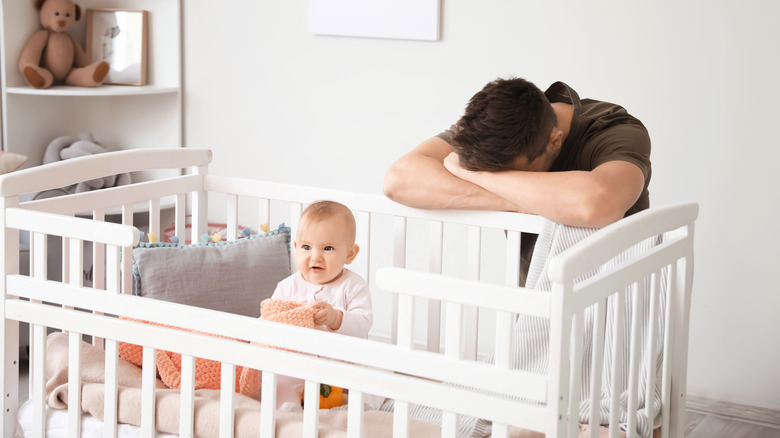There are a lot of benefits that come with starting a family in these modern times. The widespread availability of Lamaze classes, helpful mommy blogs, and nutritious premade baby food delivered right to your doorstep. Yes, convenience and information are helpful in the early stages of family life. And perhaps one of the best modern-day benefits to having children is that postpartum depression is no longer written off as “just the baby blues.” According to the Illinois Department of Public Health reports, 10–20% of new moms will experience postpartum depression.
But what about new fathers? “Everyone knows that mothers’ hormones change a lot during and after pregnancy,” says psychologist Scott Bea, PsyD., to the Cleveland Clinic. “But there’s evidence that fathers also experience real changes in their hormone levels after a baby is born,” he says. As Parents reports, 10% of new fathers worldwide exhibit symptoms of male postpartum depression after their child is born. The outlet also cited reports that have shown that 26% of new dads are prone to symptoms of depression when the newborn is between 3 to 6 months of age.
One in four new dads become depressed

The bigger picture numbers are alarming. “The fact is, one in four new dads in the United States become depressed — which amounts to 3,000 dads who become depressed each day. It’s normal for dads to need help as they enter fatherhood,” says Dr. Will Courtenay, Ph.D. to Parents.
Fortunately, new fathers can take action. Dr. Bea recommends a healthy diet and exercise and avoiding alcohol for new dads. Also, it is important to share how you feel with loved ones. “Asking for help doesn’t mean you’re helpless,” he says, per the Cleveland Clinic. New parents can also be open about how they really feel, so they don’t contribute to the false and widespread assumption that new parents should be nothing but over the moon after having a new baby.
Dr. Courtenay advises a new dad experiencing signs of postpartum to seek professional counseling, plus support groups (via Parents). “The important thing to remember is that all of the negative consequences of paternal postpartum depression are avoidable,” says Dr. Courtenay. “Although it’s a very serious — and sometimes life-threatening — condition, with proper treatment and support, men can fully recover.”







